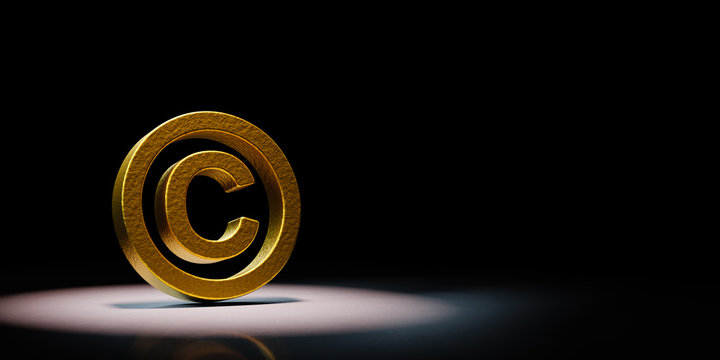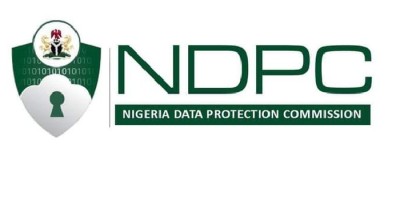Modifications To Fair Dealing And Other Exceptions Under The New Copyright Act
Posted on Mon 25 Mar 2024
- Download Resource
On April 1, 2023, President Muhammadu Buhari signed into law the Copyright Act of 2022 (the “New Act”). The New Act makes a number of changes to Nigeria's copyright law, the most notable of which includes the modifications to the exceptions to copyright infringement.
Part II[1] of the New Act expands on the exceptions set forth in the Second Schedule of the Copyright Act of 2004 (the “Repealed Act”). The Repealed Act provided for certain uses of copyrighted works without the permission of the copyright holder, in specific instances. However, in addition to the cases contained in the Repealed Act, the New Act makes further modifications as discussed below.

Expansion of Use of Copyrighted works under Fair Dealing
The New Act adopts the fair use doctrine from the United States copyright law which allows for a wider range of use of copyrighted works without permission. It provides for four factors which are to be considered in determining whether the particular use of a copyrighted work is fair. In determining whether the use of a work in any given case amounts to fair dealing[2], the New Act stipulates that the factors to be considered shall include:[3]
a. The purpose and character of its usage;
b. The nature of the copyrighted work;
c. The amount and substantiality of the portion used in relation to the copyrighted work as a whole; and
d. The effect of the use on the potential market or value of the copyrighted work.
It therefore follows that any unpermitted reproduction, publication, performance, adaptation or distribution of a copyrighted work may amount to fair dealing, if upon consideration of the aforementioned factors, it is determined that such infringing actions are fair.
Acts for the purposes of instruction or examination, and acts by educational institutions
Section 21 of the New Act provides for certain exemptions to copyright infringement in relation to acts for the purposes of instruction or examination and further stipulates that copyright in a work is not infringed by anything done for the purposes of setting or answering examination questions.[4] Additionally, in the absence of a licensing scheme, the recording of a broadcast or cable programme or a copy of such a recording by or on behalf of an educational establishment for educational purposes of that establishment shall not infringe the copyright in the broadcast or cable programme or in any work included in it.[5] The exceptions granted by the New Act in relation to educational purposes, also extend to the reprographic copying (amounting to not more than five percent within a period of three months) of literary or musical works on behalf of educational institutions.[6]
The above exceptions afforded to foster educational activities, do not apply where the subsequent copies of the works are dealt with by way of sale, or rent.[7] This qualification, serves to prevent an abuse of this exception by errant members of educational institutions.

Special provisions for archives, libraries, museums, and galleries
Archives, libraries, museums, and galleries are also granted extended exceptions under the New Act, which allows these institutions to make copies of protected works and lend same to their users for non-commercial purposes.
Special exceptions for blind, visually impaired, or otherwise print disabled persons
Further exceptions also extend to the blind and persons with visual impairment or reading disabilities, allowing certain entities to make or procure an accessible format copy of a work for the benefit of such disabled persons, without the permission of the owner of a copyrighted work. Unlike the Repealed Act, which merely allowed for the exception of the reproduction of published work in braille for the exclusive use of the blind or disabled person, the New Act provides for the manner in which this exception is to be exploited. Accordingly, while beneficiary persons[8] or persons acting on their behalf[9] may without permission, make an accessible format copy of a work for the personal use of such beneficiary persons, an authorized entity,[10] subject to a few conditions, may without the permission of the owner of copyright in a work, make or procure an accessible format copy of a work and supply such copy to beneficiary persons by any means.[11] The above exceptions are subject to the condition that both the authorised entity, and a beneficiary person (or persons acting on their behalf) must have had lawful access to the work in question.
Conclusion
The New Copyright Act introduces a number of significant modifications to Nigeria's copyright law, including an expansion of the fair dealing doctrine and the addition of exceptions for educational institutions, archives, libraries, museums, and galleries, as well as for the blind and visually impaired. These modifications are likely to have a significant impact on the manner in which copyrighted works are utilized in Nigeria.
The expanded fair dealing doctrine will provide Nigerian creators with greater flexibility in their use of copyrighted works, while the additional exceptions will make it easier for designated institutions to access and use copyrighted works for their respective purposes. In addition, the expansion on the exceptions to copyright infringement will also have a positive effect on the blind and visually impaired community in Nigeria by facilitating their access to copyrighted works.
DISCLAIMER: This article is intended to provide a general guide to the subject matter and does not by itself constitute legal advice to readers. Specialist advice should be sought about readers’ specific circumstances.
For further information, kindly contact our Intellectual Property Team at IPGroup@banwo-ighodalo.com
[1] Sections 20-27
[2] Fair Dealing is used under Nigerian Law while Fair Use is used under US law.
[3] Section 20
[4] Section 21 (3)
[5] Section 22
[6] Section 23
[7] Section 24 (1)
[8] According to Section 26 (7) (d) of the New Act, beneficiary persons include persons who are blind; have visual impairment or a perceptual or reading disability which cannot be improved to give visual function substantially equivalent to that of a person who has no such impairment or disability and so is unable to read printed works to substantially the same degree as a person without an impairment or disability; or are otherwise unable, through physical disability, to hold or manipulate a book or to focus or move the eyes to the extent that would be normally acceptable for reading.
[9] According to Section 26 (4) and (6) of the New Act, person acting on behalf of a beneficiary person include; a primary caretaker or caregiver.
[10] According to Section 26 (7) (c) of the New Act, an authorized entity is an entity that is authorised or recognized by the government, or receives financial support from the government, to provide education, instructional training, adaptive reading or information access to beneficiary persons on a non-profit basis; or a government institution or non-profit organisation that provides education, instructional training, adaptive reading or information access to beneficiary persons as part of its primary activities or institutional obligations.
[11] Section 26













